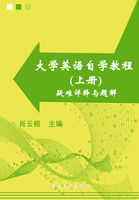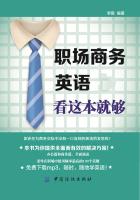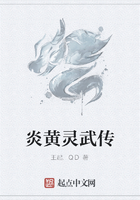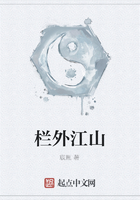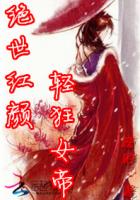CIGARS HAD BURNED low, and we were beginning to sample the disillusionment that usually afflicts old school friends who have met again as men and found themselves with less in common than they had believed they had. Rutherford wrote novels; Wyland was one of the Embassy secretaries; he had just given us dinner at Tempelhof—not very cheerfully, I fancied, but with the equanimity which a diplomat must always keep on tap for such occasions. It seemed likely that nothing but the fact of being three celibate Englishmen in a foreign capital could have brought us together, and I had already reached the conclusion that the slight touch of priggishness which I remembered in Wyland Tertius had not diminished with years and an M.V.O. Rutherford I liked more, he had ripened well out of the skinny, precocious infant whom I had once alternately bullied and patronized. The probability that he was making much more money and having a more interesting life than either of us, gave Wyland and me our one mutual emotion—a touch of envy.
The evening, however, was far from dull. We had a good view of the big Luft-Hansa machines as they arrived at the aerodrome from all parts of Central Europe, and towards dusk, when arc-flares were lighted, the scene took on a rich, theatrical brilliance. One of the planes was English, and its pilot, in full flying-kit, strolled past our table and saluted Wyland, who did not at first recognize him. When he did so there were introductions all around, and the stranger was invited to join us. He was a pleasant, jolly youth named Sanders. Wyland made some apologetic remark about the difficulty of identifying people when they were all dressed up in Sibleys and flying-helmets; at which Sanders laughed and answered: "Oh, rather, I know that well enough. Don't forget I was at Baskul." Wyland laughed also, but less spontaneously, and the conversation then took other directions.
Sanders made an attractive addition to our small company, and we all drank a great deal of beer together. About ten o'clock Wyland left us for a moment to speak to some one at a table near by, and Rutherford, into the sudden hiatus of talk, remarked: "Oh, by the way, you mentioned Baskul just now. I know the place slightly. What was it you were referring to that happened there?"
Sanders smiled rather shyly. "Oh, just a bit of excitement we had once when I was in the Service." But he was a youth who could not long refrain from being confidential. "Fact is, an Afghan or an Afridi or somebody ran off with one of our buses, and there was the very devil to pay afterwards, as you can imagine. Most impudent thing I ever heard of. The blighter waylaid the pilot, knocked him out, pinched his kit, and climbed into the cockpit without a soul spotting him. Gave the mechanics the proper signals, too, and was up and away in fine style. The trouble was, he never came back."
Rutherford looked interested. "When did this happen?"
"Oh—must have been about a year ago. May, 'thirty-one. We were evacuating civilians from Baskul to Peshawar owing to the revolution—perhaps you remember the business. The place was in a bit of an upset, or I don't suppose the thing could have happened. Still, it did happen—and it goes some way to show that clothes make the man, doesn't it?"
Rutherford was still interested. "I should have thought you'd have had more than one fellow in charge of a plane on an occasion like that?"
"We did, on all the ordinary troop-carriers, but this machine was a special one, built for some maharajah originally—quite a stunt kind of outfit. The Indian Survey people had been using it for high-altitude flights in Kashmir."
"And you say it never reached Peshawar?"
"Never reached there, and never came down anywhere else, so far as we could discover. That was the queer part about it. Of course, if the fellow was a tribesman he might have made for the hills, thinking to hold the passengers for ransom. I suppose they all got killed, somehow. There are heaps of places on the frontier where you might crash and not be heard of afterwards."
"Yes, I know the sort of country. How many passengers were there?"
"Four, I think. Three men and some woman missionary."
"Was one of the men, by any chance, named Conway?"
Sanders looked surprised. "Why, yes, as a matter of fact 'Glory' Conway—did you know him?"
"He and I were at the same school," said Rutherford a little self-consciously, for it was true enough, yet a remark which he was aware did not suit him.
"He was a jolly fine chap, by all accounts of what he did at Baskul,"went on Sanders.
Rutherford nodded. "Yes, undoubtedly … but how extraordinary …extraordinary …" He appeared to collect himself after a spell of mind-wandering. Then he said: "It was never in the papers, or I think I should have read about it. How was that?"
Sanders looked suddenly rather uncomfortable, and even, I imagined, was on the point of blushing. "To tell you the truth," he replied, "I seem to have let out more than I should have. Or perhaps it doesn't matter now—it must be stale news in every mess, let alone in the bazaars. It was hushed up, you see—I mean, about the way the thing happened. Wouldn't have sounded well. The Government people merely gave out that one of their machines was missing and mentioned the names. Sort of thing that didn't attract an awful lot of attention among outsiders."
At this point Wyland rejoined us, and Sanders turned to him half apologetically. "I say, Wyland, these chaps have been talking about'Glory' Conway. I'm afraid I spilled the Baskul yarn—I hope you don't think it matters?"
Wyland was severely silent for a moment. It was plain that he was reconciling the claims of compatriot courtesy and official rectitude. "I can't help feeling," he said at length, "that it's a pity to make a mere anecdote of it. I always thought you air fellows were put on your honor not to tell tales out of school." Having thus snubbed the youth, he turned, rather more graciously, to Rutherford. "Of course, it's all right in your case, but I'm sure you realize that it's sometimes necessary for events up on the Frontier to be shrouded in a little mystery."
"On the other hand," replied Rutherford dryly, "one has a curious itch to know the truth."
"It was never concealed from any one who had any real reason for wanting to know it. I was at Peshawar at the time, and I can assure you of that. Did you know Conway well—since schooldays, I mean?"
"Just a little at Oxford, and a few chance meetings since. Did you come across him much?"
"At Angora, when I was stationed there, we met once or twice."
"Did you like him?"
"I thought he was clever, but rather slack."
Rutherford smiled. "He was certainly clever. He had a most exciting university career—until war broke out. Rowing Blue and a leading light at the Union and prizeman for this, that, and the other—also I reckon him the best amateur pianist I ever heard. Amazingly many-sided fellow, the kind, one feels, that Jowett would have tipped for a future premier. Yet, in point of fact, one never heard much about him after those Oxford days. Of course the War cut into his career. He was very young and I gather he went through most of it."
"He was blown up or something," responded Wyland, "but nothing very serious. Didn't do at all badly, got a D.S.O in France. Then I believe he went back to Oxford for a spell as a sort of don. I know he went East in 'twenty-one. His Oriental languages got him the job without any of the usual preliminaries. He had several posts."
Rutherford smiled more broadly. "Then of course, that accounts for everything. History will never disclose the amount of sheer brilliance wasted in the routine of decoding F.O. chits and handing round tea at Legation bun-fights."
"He was in the Consular Service, not the Diplomatic," said Wyland loftily. It was evident that he did not care for the chaff, and he made no protest when, after a little more badinage of a similar kind, Rutherford rose to go. In any case it was getting late, and I said I would go, too. Wyland's attitude as we made our farewells was still one of official propriety suffering in silence, but Sanders was very cordial and he said he hoped to meet us again sometime.
I was catching a transcontinental train at a very dismal hour of the early morning and, as we waited for a taxi, Rutherford asked me if I would care to spend the interval at his hotel. He had a sitting room, he said, and we could talk. I said it would suit me excellently, and he answered: "Good. We can talk about Conway, if you like, unless you're completely bored with his affairs."
I said that I wasn't, at all, though I had scarcely known him. "He left at the end of my first term, and I never met him afterwards. But he was extraordinarily kind to me on one occasion. I was a new boy and there was no earthly reason why he should have done what he did. It was only a trivial thing, but I've always remembered it."
Rutherford assented. "Yes, I liked him a good deal too, though I also saw surprisingly little of him, if you measure it in time."
And then there was a somewhat odd silence, during which it was evident that we were both thinking of some one who had mattered to us far more than might have been judged from such casual contacts. I have often found since then that others who met Conway, even quite formally and for a moment, remembered him afterwards with great vividness. He was certainly remarkable as a youth, and to me, who had known him at the hero-worshipping age, his memory is still quite romantically distinct. He was tall and extremely good looking, and not only excelled at games but walked off with every conceivable kind of school prize. A rather sentimental headmaster once referred to his exploits as "glorious", and from that arose his nickname. Perhaps only he could have survived it. He gave a Speech Day oration in Greek, I recollect, and was outstandingly first-rate in school theatricals. There was something rather Elizabethan about him—his casual versatility, his good looks, that effervescent combination of mental with physical activities. Something a bit Philip-Sidneyish. Our civilization doesn't often breed people like that nowadays. I made a remark of this kind to Rutherford, and he replied:"Yes, that's true, and we have a special word of disparagement for them—we call them dilettanti. I suppose some people must have called Conway that, people like Wyland, for instance. I don't much care for Wyland. I can't stand his type—all that primness and mountainous self-importance. And the complete head-prefectorial mind, did you notice it? Little phrases about 'putting people on their honor' and 'telling tales out of school'—as though the bally Empire were the Fifth Form at St. Dominic's! But, then, I always fall foul of these sahib diplomats."
We drove a few blocks in silence, and then he continued: "Still, I wouldn't have missed this evening. It was a peculiar experience for me, hearing Sanders tell that story about the affair at Baskul. You see, I'd heard it before, and hadn't properly believed it. It was part of a much more fantastic story, which I saw no reason to believe at all, or well, only one very slight reason, anyway.Now there are two very slight reasons. I dare say you can guess that I'm not a particularly gullible person. I've spent a good deal of my life traveling about, and I know there are queer things in the world—if you see them yourself, that is, but not so often if you hear of them secondhand. And yet …"
He seemed suddenly to realize that what he was saying could not mean very much to me, and broke off with a laugh. "Well, there's one thing certain—I'm not likely to take Wyland into my confidence. It would be like trying to sell an epic poem to Tit-Bits.I'd rather try my luck with you."
"Perhaps you flatter me," I suggested.
"Your book doesn't lead me to think so."
I had not mentioned my authorship of that rather technical work (after all, a neurologist's is not everybody's "shop"), and I was agreeably surprised that Rutherford had even heard of it. I said as much, and he answered: "Well, you see, I was interested, because amnesia was Conway's trouble at one time."
We had reached the hotel and he had to get his key at the bureau. As we went up to the fifth floor he said: "All this is mere beating about the bush. The fact is, Conway isn't dead. At least he wasn't a few months ago."
This seemed beyond comment in the narrow space and time of an elevator ascent. In the corridor a few seconds later I responded: "Are you sure of that? How do you know?"
And he answered, unlocking his door: "Because I traveled with him from Shanghai to Honolulu in a Jap liner last November." He did not speak again till we were settled in armchairs and had fixed ourselves with drinks and cigars. "You see, I was in China in the autumn on a holiday. I'm always wandering about. I hadn't seen Conway for years. We never corresponded, and I can't say he was often in my thoughts, though his was one of the few faces that have always come to me quite effortlessly if I tried to picture it. I had been visiting a friend in Hankow and was returning by the Pekin express. On the train I chanced to get into conversation with a very charming Mother Superior of some French sisters of charity. She was traveling to Chung-Kiang, where her convent was, and, because I knew a little French, she seemed to enjoy chattering to me about her work and affairs in general. As a matter of fact, I haven't much sympathy with ordinary missionary enterprise, but I'm prepared to admit, as many people are nowadays, that the Romans stand in a class by themselves, since at least they work hard and don't pose as commissioned officers in a world full of other ranks. Still, that's by the by. The point is that this lady, talking to me about the mission hospital at Chung-Kiang, mentioned a fever case that had been brought in some weeks back, a man who they thought must be a European, though he could give no account of himself and had no papers. His clothes were native, and of the poorest kind, and when taken in by the nuns he had been very ill indeed. He spoke fluent Chinese as well as pretty good French, and my train companion assured me that before he realized the nationality of the nuns, he had also addressed them in English with a refined accent. I said I couldn't imagine such a phenomenon, and chaffed her gently about being able to detect a refined accent in a language she didn't know. We joked about these and other matters, and it ended by her inviting me to visit the mission if ever I happened to be thereabouts. This, of course, seemed then as unlikely as that I should climb Everest, and when the train reached Chung-Kiang I shook hands with genuine regret that our chance contact had come to an end. As it happened, though, I was back in Chung-Kiang within a few hours. The train broke down a mile or two further on, and with much difficulty pushed us back to the station, where we learned that a relief engine could not possibly arrive for twelve hours. That's the sort of thing that often happens on Chinese railways. So there was half a day to be lived through in Chung-Kiang—which made me decide to take the good lady at her word and call at the mission.
"I did so, and received a cordial, though naturally a somewhat astonished, welcome. I suppose one of the hardest things for a non-Catholic to realize is how easily a Catholic can combine official rigidity with non-official broadmindedness. Is that too complicated? Anyhow, never mind, those mission people made quite delightful company. Before I'd been there an hour I found that a meal had been prepared, and a young Chinese Christian doctor sat down with me to it and kept up a conversation in a jolly mixture of French and English. Afterwards, he and the Mother Superior took me to see the hospital, of which they were very proud. I had told them I was a writer, and they were simple-minded enough to be a-flutter at the thought that I might put them all into a book. We walked past the beds while the doctor explained the cases. The place was spotlessly clean and looked to be very competently run. I had forgotten all about the mysterious patient with the refined English accent till the Mother Superior reminded me that we were just coming to him. All I could see was the back of the man's head; he was apparently asleep. It was suggested that I should address him in English, so I said'Good afternoon,' which was the first and not very original thing I could think of. The man looked up suddenly and said 'Good afternoon' in answer. It was true; his accent was educated. But I hadn't time to be surprised at that, for I had already recognized him, despite his beard and altogether changed appearance and the fact that we hadn't met for so long. He was Conway. I was certain he was, and yet, if I'd paused to think about it, I might well have come to the conclusion that he couldn't possibly be. Fortunately I acted on the impulse of the moment. I called out his name and my own, and though he looked at me without any definite sign of recognition, I was positive I hadn't made any mistake. There was an odd little twitching of the facial muscles that I had noticed in him before, and he had the same eyes that at Balliol we used to say were so much more of a Cambridge blue than an Oxford. But besides all that, he was a man one simply didn't make mistakes about—to see him once was to know him always. Of course the doctor and the Mother Superior were greatly excited. I told them that I knew the man, that he was English, and a friend of mine, and that if he didn't recognize me, it could only be because he had completely lost his memory. They agreed, in a rather amazed way, and we had a long consultation about the case. They weren't able to make any suggestions as to how Conway could possibly have arrived at Chung-Kiang in his condition.
"To make the story brief, I stayed there over a fortnight, hoping that somehow or other I might induce him to remember things. I didn't succeed, but he regained his physical health, and we talked a good deal. When I told him quite frankly who I was and who he was, he was docile enough not to argue about it. He was quite cheerful even, in a vague sort of way, and seemed glad enough to have my company. To my suggestion that I should take him home, he simply said that he didn't mind. It was a little unnerving, that apparent lack of any personal desire. As soon as I could I arranged for our departure. I made a confidant of an acquaintance in the consular office at Hankow, and thus the necessary passport and so on were made out without the fuss there might otherwise have been. Indeed, it seemed to me that for Conway's sake the whole business had better be kept free from publicity and newspaper headlines, and I'm glad to say I succeeded in that. It could have been jam, of course, for the press.
"Well, we made our exit from China in quite a normal way. We sailed down the Yang-tse to Nanking and then took a train for Shanghai. There was a Jap liner leaving for 'Frisco that same night, so we made a great rush and got on board."
"You did a tremendous lot for him," I said.
Rutherford did not deny it. "I don't think I should have done quite as much for any one else," he answered. "But there was something about the fellow, and always had been—it's hard to explain, but it made one enjoy doing what one could."
"Yes," I agreed. "He had a peculiar charm, a sort of winsomeness that's pleasant to remember even now when I picture it, though, of course, I think of him still as a schoolboy in cricket flannels."
"A pity you didn't know him at Oxford. He was just brilliant—there's no other word. After the War people said he was different. I, myself, think he was. But I can't help feeling that with all his gifts he ought to have been doing bigger work. All that Britannic Majesty stuff isn't my idea of a great man's career. And Conway was—or should have been—great. You and I have both known him, and I don't think I'm exaggerating when I say it's an experience we shan't ever forget. And even when he and I met in the middle of China, with his mind a blank and his past a mystery, there was still that queer core of attractiveness in him."
Rutherford paused reminiscently and then continued: "As you can imagine, we renewed our old friendship on the ship. I told him as much as I knew about himself, and he listened with an attention that might almost have seemed a little absurd. He remembered everything quite clearly since his arrival at Chung-Kiang, and another point that may interest you is that he hadn't forgotten languages. He told me, for instance, that he knew he must have had something to do with India, because he could speak Hindostani.
"At Yokohama the ship filled up, and among the new passengers was Sieveking, the pianist, en route for a concert tour in the States. He was at our dining table and sometimes talked with Conway in German. That will show you how outwardly normal Conway was. Apart from his loss of memory, which didn't show in ordinary intercourse, there couldn't have seemed much wrong with him.
"A few nights after leaving Japan, Sieveking was prevailed upon to give a piano recital on board, and Conway and I went to hear him. He played well, of course, some Brahms and Scarlatti, and a lot of Chopin. Once or twice I glanced at Conway and judged that he was enjoying it all, which appeared very natural, in view of his own musical past. At the end of the program the show lengthened out into an informal series of encores which Sieveking bestowed, very amiably I thought, upon a few enthusiasts grouped round the piano. Again he played mostly Chopin;he rather specializes in it, you know. At last he left the piano and moved towards the door, still followed by admirers, but evidently feeling that he had done enough for them. In the meantime a rather odd thing was beginning to happen. Conway had sat down at the keyboard and was playing some rapid, lively piece that I didn't recognize, but which drew Sieveking back in great excitement to ask what it was. Conway, after a long and rather strange silence, could only reply that he didn't know. Sieveking exclaimed that it was incredible, and grew more excited still. Conway then made what appeared to be a tremendous physical and mental effort to remember, and said at last that the thing was a Chopin study. I didn't think myself it could be, and I wasn't surprised when Sieveking denied it absolutely. Conway, however, grew suddenly quite indignant about the matter—which startled me, because up to then he had shown so little emotion about anything. 'My dear fellow, 'Sieveking remonstrated, 'I know everything of Chopin's that exists, and I can assure you that he never wrote what you have just played. He might well have done so, because it's utterly his style, but he just didn't. I challenge you to show me the score in any of the editions'. To which Conway replied at length:'Oh, yes, I remember now, it was never printed. I only know it myself from meeting a man who used to be one of Chopin's pupils…Here's another unpublished thing I learned from him. '"
Rutherford steadied me with his eyes as he went on: "I don't know if you're a musician, but even if you're not, I dare say you'll be able to imagine something of Sieveking's excitement, and mine, too, as Conway continued to play. To me, of course, it was a sudden and quite mystifying glimpse into his past, the first clew of any kind that had escaped. Sieveking was naturally engrossed in the musical problem, which was perplexing enough, as you'll realize when I remind you that Chopin died in 1849.
"The whole incident was so unfathomable, in a sense, that perhaps I should add that there were at least a dozen witnesses of it, including a Californian university professor of some repute. Of course, it was easy to say that Conway's explanation was chronologically impossible, or almost so; but there was still the music itself to be explained. If it wasn't what Conway said it was, then what was it? Sieveking assured me that if those two pieces were published, they would be in every virtuoso's repertoire within six months. Even if this is an exaggeration, it shows Sieveking's opinion of them. After much argument at the time, we weren't able to settle anything, for Conway stuck to his story, and as he was beginning to look fatigued, I was anxious to get him away from the crowd and off to bed. The last episode was about making some phonograph records. Sieveking said he would fix up all arrangements as soon as he reached America, and Conway gave his promise to play before the microphone. I often feel it was a great pity, from every point of view, that he wasn't able to keep his word."
Rutherford glanced at his watch and impressed on me that I should have plenty of time to catch my train, since his story was practically finished. "Because that night—the night after the recital—he got back his memory. We had both gone to bed and I was lying awake when he came into my cabin and told me. His face had stiffened into what I can only describe as an expression of overwhelming sadness—a sort of universal sadness, if you know what I mean—something remote or impersonal, a Wehmut or Weltschmerz, or whatever the Germans call it. He said he could call to mind everything, that it had begun to come back to him during Sieveking's playing, though only in patches at first. He sat for a long while on the edge of my bed, and I let him take his own time and make his own method of telling me. I said that I was glad his memory had returned, but sorry if he already wished that it hadn't. He looked up then and paid me what I shall always regard as a marvelously high compliment. 'Thank God, Rutherford, ' he said, 'you are capable of imagining things.' After a while I dressed and persuaded him to do the same, and we walked up and down the boat deck. It was a calm night, starry and very warm, and the sea had a pale, sticky look, like condensed milk. Except for the vibration of the engines, we might have been pacing an esplanade. I let Conway go on in his own way, without questions at first. Somewhere about dawn he began to talk consecutively, and it was breakfast time and hot sunshine when he had finished. When I say'finished' I don't mean that there was nothing more to tell me after that first confession. He filled in a good many important gaps during the next twenty-four hours. He was very unhappy, and couldn't have slept, so we talked almost constantly. About the middle of the following night the ship was due to reach Honolulu. We had drinks in my cabin the evening before; he left me about ten o'clock, and I never saw him again."
"You don't mean—" I had a picture in mind of a very calm, deliberate suicide I once saw on the mail-boat from Holyhead to Kingstown.
Rutherford laughed. "Oh, Lord, no—he wasn't that sort. He just gave me the slip. It was easy enough to get ashore, but he must have found it hard to avoid being traced when I set people searching for him, as of course I did. Afterwards I learned that he'd managed to join the crew of a banana-boat going south to Fiji."
"How did you get to know that?"
"Quite straightforwardly. He wrote to me, three months later, from Bangkok, enclosing a draft to pay the expenses I'd been put to on his account. He thanked me and said he was very fit. He also said he was about to set out on a long journey—to the northwest. That was all."
"Where did he mean?"
"Yes, it's pretty vague, isn't it? A good many places lie to the northwest of Bangkok. Even Berlin does, for that matter."
Rutherford paused and filled up my glass and his own. It had been a queer story—or else he had made it seem so; I hardly knew which. The music part of it, though puzzling, did not interest me so much as the mystery of Conway's arrival at that Chinese mission hospital; and I made this comment. Rutherford answered that in point of fact they were both parts of the same problem.
"Well, how did he get to Chung-Kiang?"I asked."I suppose he told you all about it that night on the ship?"
"He told me something about it, and it would be absurd of me, after letting you know so much, to be secretive about the rest. Only, to begin with, it's a longish sort of tale, and there wouldn't be time even to outline it before you'd have to be off for your train. And besides, as it happens, there's a more convenient way. I'm a little diffident about revealing the tricks of my dishonorable calling, but the truth is Conway's story, as I pondered over it afterwards, appealed to me enormously. I had begun by making simple notes after our various conversations on the ship, so that I shouldn't forget details; later, as certain aspects of the thing began to grip me, I had the urge to do more, to fashion the written and recollected fragments into a single narrative. By that I don't mean that I invented or altered anything. There was quite enough material in what he told me: he was a fluent talker and had a natural gift for communicating an atmosphere. Also, I suppose, I felt I was beginning to understand the man himself." He went to an attaché-case and took out a bundle of typed manuscript. "Well, here it is, anyhow, and you can make what you like of it."
"By which I suppose you mean that I'm not expected to believe it?"
"Oh, hardly so definite a warning as that. But mind, if you do believe, it will be for Tertullian's famous reason—you remember?quia impossible est. Not a bad argument, maybe. Let me know what you think, at all events."
I took the manuscript away with me and read most of it on the Ostend express. I intended returning it with a long letter when I reached England, but there were delays, and before I could post it I got a short note from Rutherford to say that he was off on his wanderings again and would have no settled address for some months. He was going to Kashmir, he wrote, and thence "east". I was not surprised.

